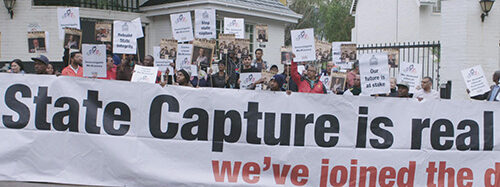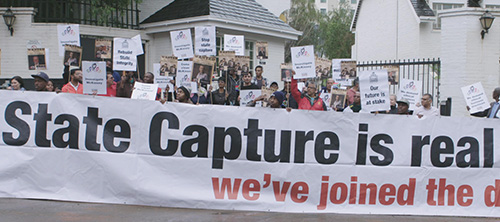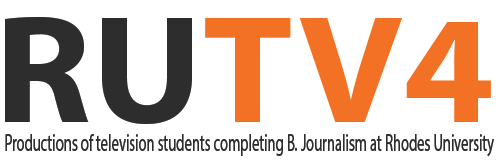

Desai and Kaplan’s guide to Stealing A Country
Luvo Mnyobe lowlights a highlight

In just under 90 minutes Mark J Kaplan and Rehad Desai, director of some of the most prolific contemporary documentaries including Everything Must Fall (2018), exploring the Fees Must Fall movement in 2015 and 2016, and Miners Shot Down (2014), on the Marikana Massacre, explores the cronyism in the state with captivating suspense and detail.
In the film How to Steal A Country, he tells the gripping story of how President Jacob Zuma surrendered his executive duties to the Gupta brothers allowing them to control procurement of tenders at State Owned Entities such as Eskom and Transnet that are the bedrock of South Africa’s economy.
The first sights of resistance to the looting of the state were expressed by investigative journalists in the country. Journalists from the Mail & Guardian, the Daily Maverick, Sunday Times and AmaBhungane were some of the first publications to ring the alarm bells on the takeover of government functions to enable capture.
Many of us were duped into believing that these reports were less than true. Partly because it seemed too good to be true that a single family could maneuver its way into state power so easily. We were all aware of corruption in parts of the ANC but it was shocking that it would reach the extent of surrender its duties a company to aid a private family in pursuit of wealth.
The documentary complements the great work done by these investigative journalists at a time when there is growing intolerance to journalism all over the world. It is a testament to the need to protect journalists and their work.
President Zuma and the Guptas figured that the only way in which they could continue with their looting would be to launch an alternative media campaign, through news channel ANN7 and The New Age newspapers, which were a Fox style media presenting Zuma in a positive spin. That Zuma acted as an editor in the newspaper directing journalists to discredit his opponents speaks to a crookedness that should never find its way any public office let alone the Presidency.
While the film is entertaining I found it a little bit difficult to watch as the interviews were regularly interrupted by archive footage from news reports from the SABC, BBC, ENCA and other networks. At some point it felt as though the interviews with the journalists were not strong enough to carry the film. It felt like the directors chose to add these reports as means of supporting the views of the journalists explaining state capture.
The overwhelming use of archive undermined the strong testimony by these journalists in explaining how the country was stolen. There were points where I felt that the use of this archive could have been put aside and more detail given from the characters chosen to be part of the film. The story of state capture has been so widely covered in the media that seeing this dependence on archive made parts of the film dull.







Leave a Reply